
Learning management systems (LMS) support educational institutions and businesses to build, track, and handle their eLearning programs. But, several tools have a set pricing model that can be quite costly for small institutions and businesses. Certain factors like installation cost, fees per user/course, license, and ongoing maintenance have to be considered while allocating a budget for LMS software. There might also be some hidden costs involved that could strain your budget all the more.
Open-source LMS tools are free to use and customize, unlike proprietary software, which has certain restrictions. So, going for a free open source LMS makes more customization without the need to buy expensive licenses. There are great LMS tools available, out of which only a few are free or open-source. Here we give you a list of the top free and open source LMS tools.
Table of Contents
Key factors to consider before selecting the right free LMS tool
a. Be clear on the goal that you wish to achieve through your LMS tool.
b. Knowing your must-have features is essential.
c. Decide based on the number of users who will be accessing the Free LMS software.
d. Understand the boundaries of your IT department in customizing the LMS software.
1. GoSkills
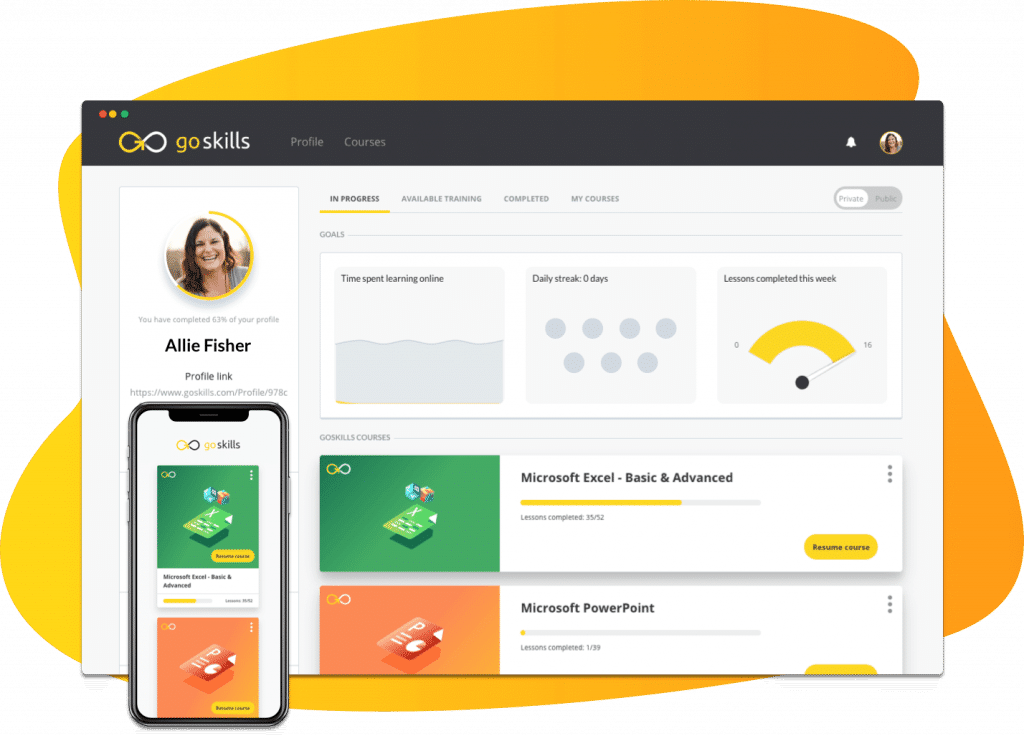
GoSkills is a free LMS tool that is cloud-based and apt for teams of any size. Users can have access to its enterprise-level features despite the size of their team or company. Some of its free features comprise course and catalog management, custom course authoring, and access to analytics and reports that help measure the effectiveness of a course. The LMS tool also contains social learning and gamification features that can support creating appealing courses.
2. Moodle

Moodle is an open-source, free LMS tool that allows users to develop customized online courses. It provides the essential tools to handle virtual classrooms, create certificates, and know the extent of the success of a training program through analytics. Learners and instructors can send messages directly to each other due to its social learning functionality on course forums. Also, it has third-party plugins support like Office 365, mobile-friendly themes, OneNote integration, and the capability to sell courses through PayPal.
Its free plan can add up to 50 users. You can also upgrade to MoodleCloud, which is Moodle’s paid version if required.
3. TalentLMS
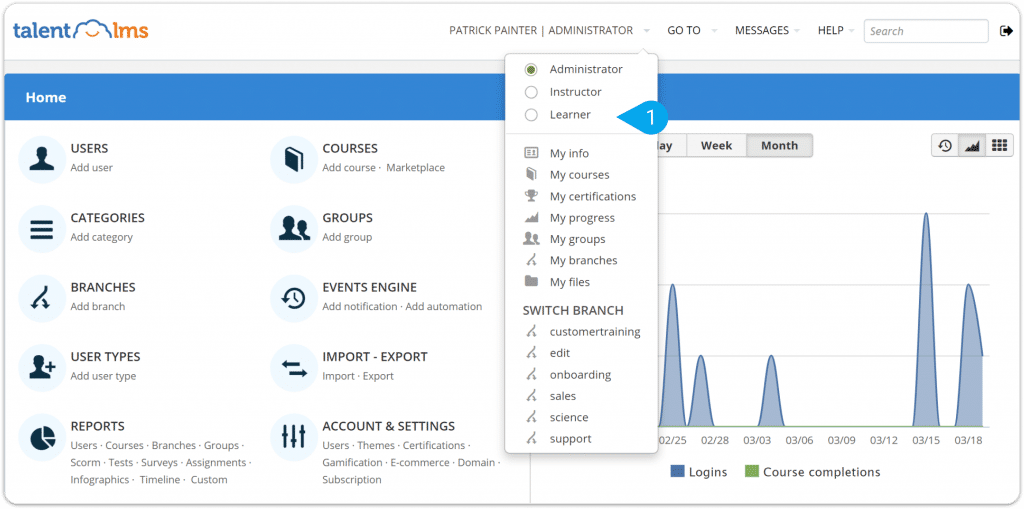
TalentLMS cloud-based learning management software is filled with an array of striking features and functionality. It provides numerous training features with synchronous, asynchronous, and mixed learning abilities. The learner portal is available to enable learners to access helpful information and services easily on their own. The LMS finds its application in e-learning companies, corporate/business houses, academic institutes, etc. You can install it on iOS and Android platforms. SCORM compliance, gamification, and certification management are present. It offers a free version for up to 5 users and ten courses with unlimited email support. The further upgrade comes with extended features based on a monthly or yearly pricing model.
4. Thinkific
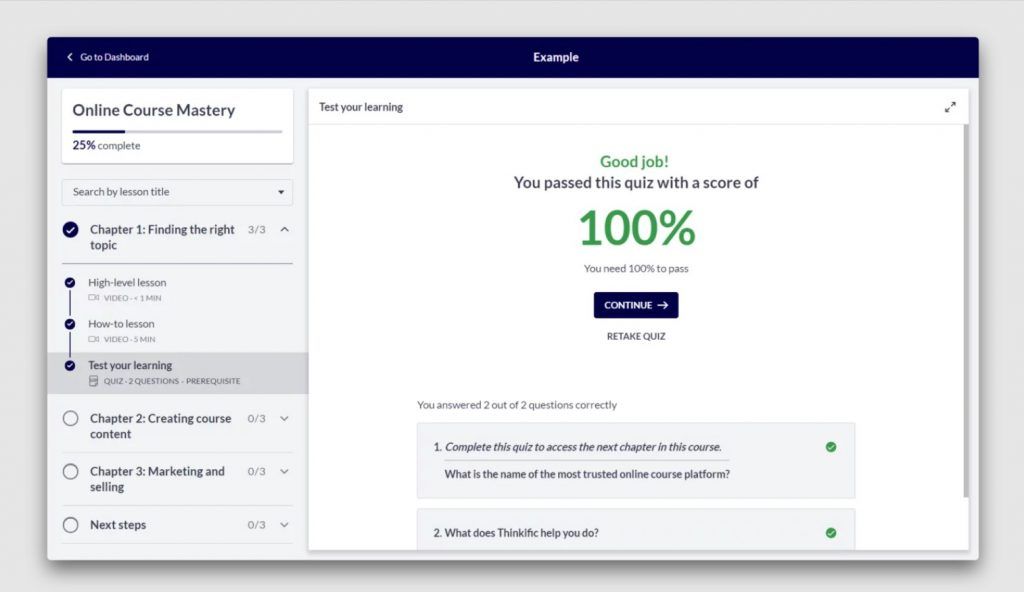
Thinkific is the one free online course platform suitable for small to medium-sized businesses. It makes building an online course simple with drag-and-drop content uploading. It helps you create an engaging learner experience by hosting various multimedia, including surveys, discussion boards, and video content. It also has a template library with options for developing mini-courses, resource libraries, and webinars. Each template has instructions for guidance and also to introduce you to some best practices in eLearning.
Its Free plan allows up to 100 students. But if you have more than 100 students or employees, you can keep the free plan and pay an additional $0.10 for each extra student.
5. Open edX
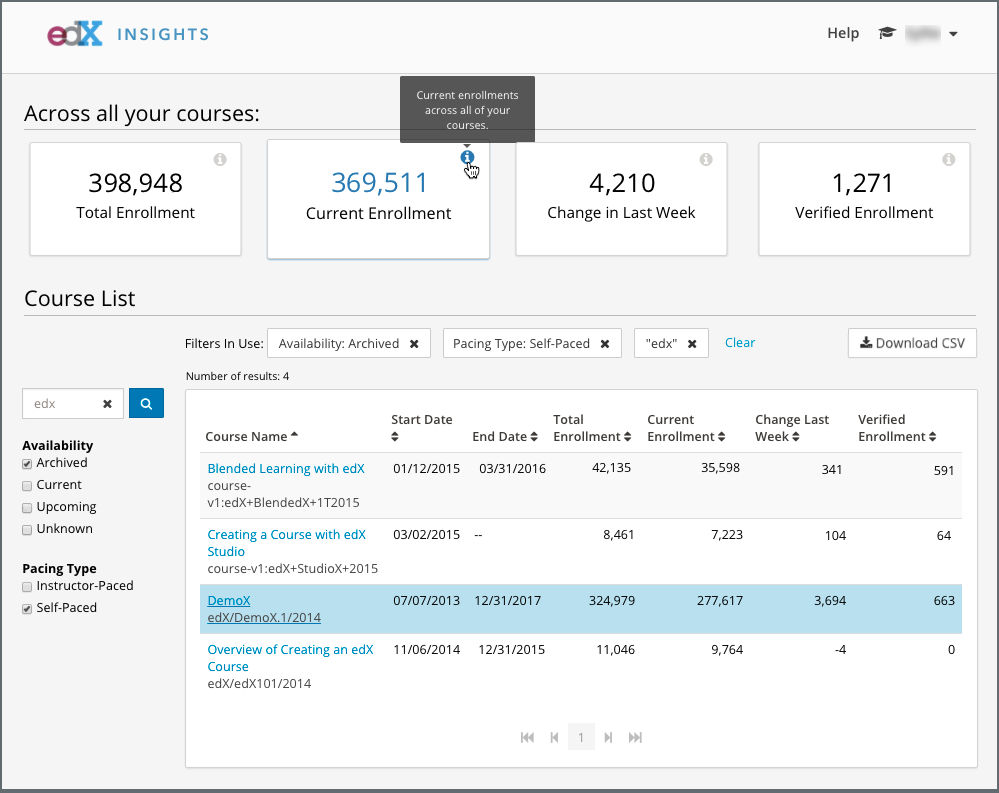
Open edX is an open-source learning management system, which provides solutions to higher educational institutes, NGOs, business entities, and the government sector. It is a popular platform with high responsiveness that can be operated flawlessly on any device – smartphones with Android or iOS, Windows or macOS, and any standard web browser. It also permits multiple integrations so that the users can access different applications without leaving the platform.
Open edX offers an intuitive and clean dashboard with insights of courses and teams based on real-time analysis. Multimedia contents can be used while designing a course, and learning can be done using VR and AR devices.
6. Canvas LMS
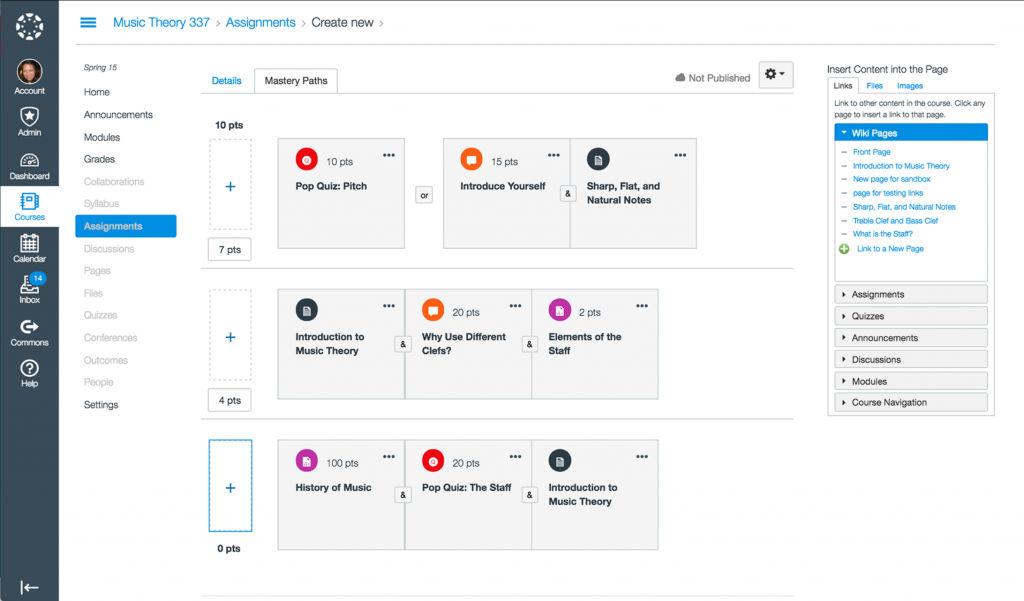
Canvas learning management tool helps digitalize courses and contents for the teachers and students. Canvas helps to link LMS to other most needed e-learning module development tools. It has robust tracking features suitable for online learning, and a deployed learning management system controls it. It means there is no place for any wrongdoing.
You can track all the records, and you can automatically evaluate the student performance based on set parameters. The reports are safe from any form of manipulation. It has both free and paid models depending upon one’s requirement.
7. Forma
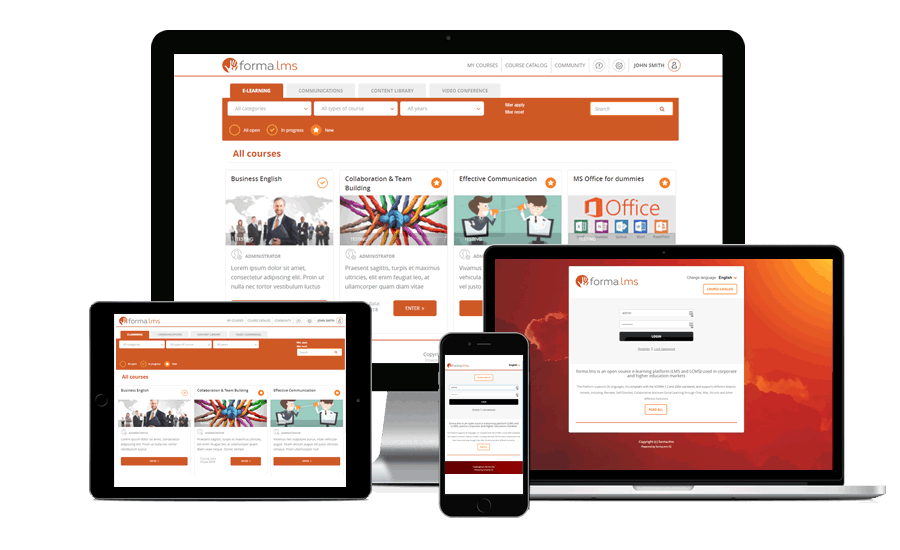
Forma is an open-source LMS software that can offer corporate training as well as online courses. The layout is responsive and straightforward; operating it is easy and it can be used by both the students and teachers. Handling HTML pages, course materials, and embedded videos is relatively easy. Webinars can be created, which is not generally present in most LMS software. The best part is that it is open source and a completely free tool.
Conclusion
Learning is confined to mere classroom study, but it is equally imperative for the business world. With the advent of the e-learning platform and its increasing popularity, various organizations and educational institutions are eagerly going for online learning management systems using LMS apps. Due to the prevailing pandemic situation, enterprises are forced to train their employees, interns, and workforce virtually. Thus, they opt for LMS for a systematic learning experience.
In case you want to check out any other SaaS software or make a decision on what tools could be right for your business, simply visit SaaSworthy.com.



![10 Best Free and Open-Source Landscape Design Software in 2024 [Updated] SaaSworthy Blog Header](https://images.saasworthy.com/blog_latest/wp-content/uploads/2021/04/Blog-Header-Image.png)


